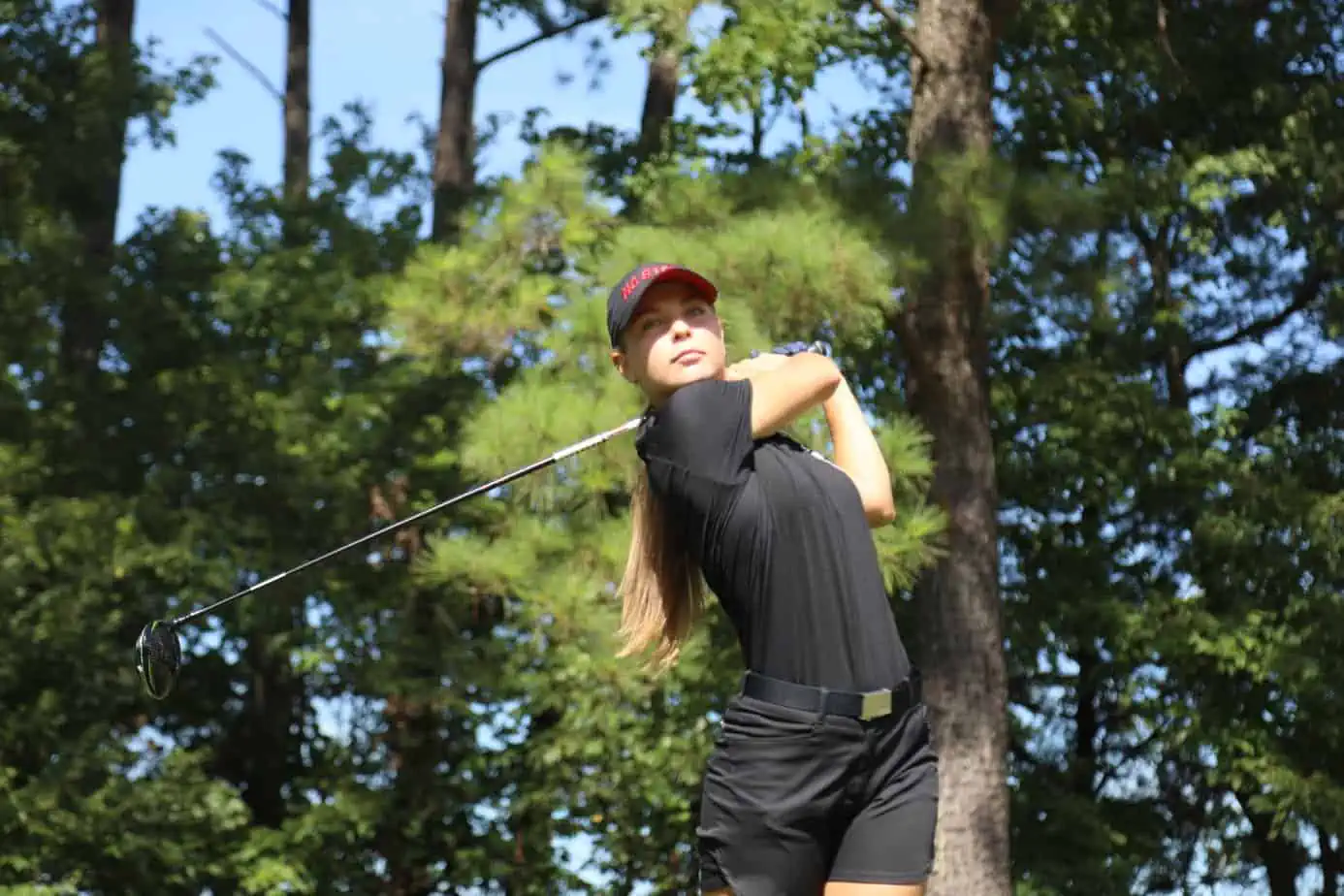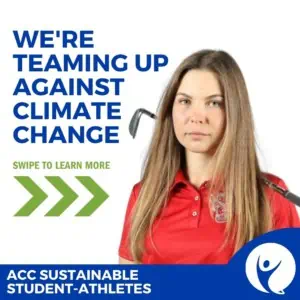EcoAthletes golfer Inja Fric: "I am the sustainability girl".
“My teammates call me sustainable golf girl.” Inja Fric, a senior at NC State University, is a member of EcoAthletes. In her college golf team, the Slovenian says with a smile on her face, she has been the one who has been thinking not only about her golf game but also about plastic bottles at golf tournaments, CO₂ emissions during team travel and the compostability of waste on the university campus for almost a year now.
An EcoAthlete for 10 months
Fric, who competed in the 2018 World Cup with her national team and won the national youth championships in 2016, didn’t really become aware of sustainability until she moved to the U.S. College. “At home in Europe, you learn how to separate garbage, how to turn off the light switches and all these little things. But when I came to the U.S., it was quite an upheaval. Here, very few people care about that.”
EcoAthletes, founded in 2020 by Lewis Blaustein, brings together athletes from around the world who care about sustainability in sports. The list of EcoAthletes Champions includes names like Brent Suter, pitcher for the Milwaukee Brewers, and Hannah Mills, gold medalist in sailing. In total, five Tokyo gold medalists are EcoAthletes, along with numerous other medalists or top athletes. In total, 111 Eco Athletes Champions with a combined 1.6 million social media followers have gathered under the EcoAthletes umbrella, for whom one thing is clear: “Athletes are known for overcoming huge obstacles, but they’ve never faced a tougher opponent than climate change.” For founder Lewis Blaustein, the main goal is to use the voice of athletes to raise awareness of the climate crisis among millions of fans.
Inja Fric herself is enthusiastic about the community. Webinars, workshops and podcasts teach her and other athletes about the latest developments in sustainability. Together with other athletes, she supports campaigns like the ecoathletes Collegiate Cup right now, in which college teams compete against each other in various sports with the help of climategames, and then have their sports converted into a climate currency that is then used to buy CO₂ certificates.
The subject of travel is difficult for athletes
At NC State University, Inja is on a roll with hands-on projects of her own – she recently launched a composting project and is now hoping to get the financial support she needs from the university. “Basically, all the coaches are pretty helpful on the subject, but in the end, there’s just always a limited budget.”
Living for greater sustainability has limits set by sport. “Soon we’ll be flying to a tournament on a private jet. I’ve told the coaches that it’s not sustainable, but it just makes more sense from a timing perspective,” is the realization. How ambitious athletes are supposed to solve the difficult issue of mobility is not clear to her anyway. “I don’t see an athlete stopping travelling because of that if they can compete in a big event.”
That leaves the simpler things: the issue of reducing single-use plastic, for example. At the European Golf Championships in Wales, for example, there were fortunately no more plastic bottles, Fric notes. It’s a completely different story at college tournaments in the U.S., he said. “All coaches buy plastic bottles.” So there’s plenty of room for optimization, says the student.
What motivates them? The belief that things will get better. “The community with the other athletes is great,” she thinks. And the reaction of those around them to the decision to become part of EcoAthletes was also positive throughout. Reason enough to continue competing on the NC State golf team as a “sustainable golf girl.”







 Golf Sustainable
Golf Sustainable